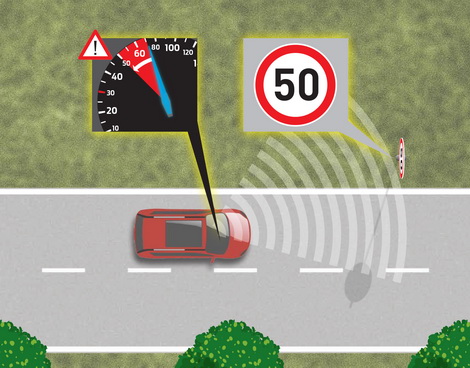Hmm, is this a good thing or a bad thing? Ford has announced it is launching a new technology that could help prevent drivers from exceeding speed limits.
Called Intelligent Speed Limiter (ISL), the driver sets a maximum speed using the steering wheel controls of anything between 32- and 193km/h (obviously, in terms of legality when it comes to the higher speeds it all depends on which country you're in). The system then uses a windscreen-mounted camera to monitor road signs and if the active limit for the road drops below the car's set speed, ISL automatically slows the vehicle as required. As the speed limit rises again, the system lets the driver accelerate - but only to the pre-set maximum velocity.
ISL doesn't actually brake the car, though, instead cutting fuel to the engine to ensure smooth deceleration. If the vehicle is travelling downhill and the speed limit is exceeded, the car simply sounds an alarm to tell the driver to intervene. The system works with onboard satnav to ensure that the car doesn't exceed limits on roads where the signs are a long way apart, such as out in the country.
ISL can be fitted to the S-Max for now but as it combines Adjustable Speed Limiter and Traffic Sign Recognition - two bits of software that are available on the Focus, Mondeo and Kuga models - you can expect to see it rolled out to the rest of the Ford range soon.
Anything else?
We're not so keen on this idea as it removes yet another layer of responsibility from the driver's shoulders, but Stefan Kappes, the Active Safety Supervisor for Ford Europe, disagrees: "Drivers are not always conscious of speeding and sometimes only become aware they were going too fast when they receive a fine in the mail or are pulled over by law enforcement. ISL can remove one of the stresses of driving, helping ensure customers remain within the legal speed limit."


